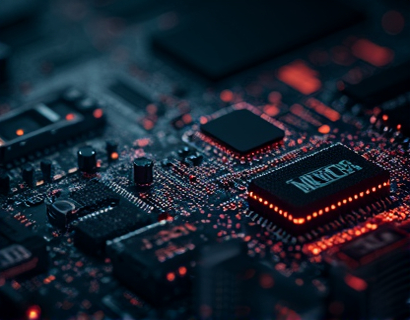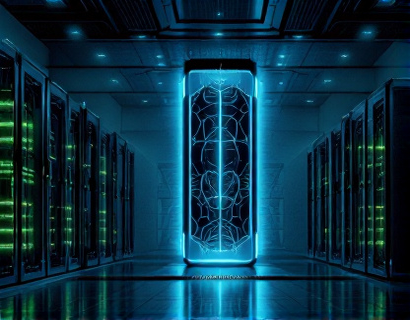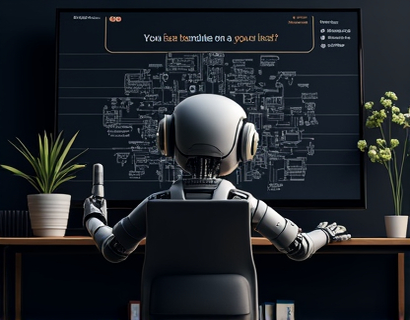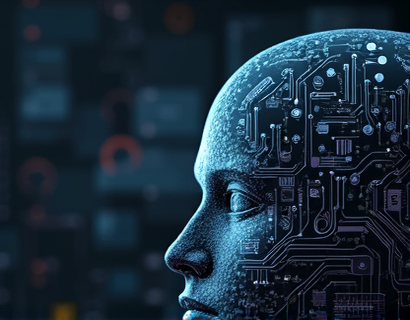Transforming Access to Specialized Bridge Industry Knowledge with AI-Powered Chat Interfaces
The bridge industry, a critical component of infrastructure development, relies heavily on specialized knowledge and expertise. Traditionally, accessing this expertise has been challenging due to the complexity of the subject matter and the need for highly skilled professionals. However, with the advent of AI-powered chat interfaces, the landscape is changing, offering a revolutionary way to interact with and gain insights into bridge industry knowledge. This article explores how these advanced chat systems are making specialized information more accessible, safe, and intuitive for users of all ages and backgrounds.
Revolutionizing Information Access
The integration of AI technology into chat interfaces marks a significant shift in how users engage with complex industries like bridge construction and maintenance. These interfaces are designed to understand natural language queries and provide accurate, relevant responses, effectively bridging the gap between technical experts and the general public. By leveraging machine learning algorithms, these chat systems continuously improve their ability to deliver personalized content, ensuring that users receive information tailored to their specific needs and level of expertise.
Personalized and Accurate Information
One of the key advantages of AI-powered chat interfaces is their capacity to deliver personalized information. Users can ask questions ranging from basic concepts to advanced engineering principles, and the chat system adapts its response accordingly. For instance, a student learning about bridge design will receive simplified explanations and foundational concepts, while a professional engineer might receive detailed technical data and recent industry developments. This level of customization ensures that users at all stages of their learning journey can access the information they need, when they need it.
Content Verification and Safety
Ensuring the accuracy and safety of information is paramount, especially in a field as critical as bridge engineering. AI chat interfaces incorporate rigorous content verification processes to guarantee that the information provided is reliable and up-to-date. This involves cross-referencing data from multiple trusted sources and continuously updating the database with the latest research and industry standards. For users, this means they can trust the information they receive, which is particularly important for educational purposes and professional decision-making.
Accessibility for All Users
The beauty of AI-powered chat interfaces lies in their ability to make complex information accessible to a wide audience. Children and students, who might find traditional textbooks and lectures daunting, can now explore the world of bridge engineering through interactive and engaging conversations. The chat system uses language that is easy to understand, incorporating visuals and examples to enhance comprehension. This approach not only makes learning more enjoyable but also helps build a foundation of knowledge that can be built upon in the future.
Engaging Young Minds
For children and students, the bridge industry can seem abstract and unapproachable. However, AI chat interfaces break down these barriers by presenting information in a relatable and interactive manner. These systems can simulate real-world scenarios, allowing young users to explore the impact of bridge design on communities and the environment. By making the subject matter tangible and relevant, AI chat interfaces spark curiosity and inspire the next generation of engineers and infrastructure professionals.
Educational Value for Educators
Educators play a crucial role in introducing students to the bridge industry, and AI chat interfaces provide a powerful tool to enhance their teaching methods. Teachers can use these chat systems to supplement their lessons, providing additional resources and interactive activities that cater to different learning styles. The chat interface can offer quizzes, interactive diagrams, and real-time feedback, making the learning process more dynamic and effective. This integration of technology into the classroom not only enriches the educational experience but also helps educators stay current with the latest industry trends.
Supporting AI Enthusiasts and Tech-Savvy Individuals
For AI enthusiasts and tech-savvy individuals, these chat interfaces offer a deeper dive into the technical aspects of bridge engineering. Users can ask detailed questions about materials, construction techniques, and innovative solutions in the field. The chat system's ability to handle complex queries and provide in-depth responses makes it an invaluable resource for those looking to expand their knowledge or stay updated on the latest advancements. This level of interaction fosters a community of learners and professionals who can share insights and collaborate on projects.
Seamless User Experience
The design of AI-powered chat interfaces prioritizes user experience, ensuring that interactions are smooth and intuitive. The natural language processing capabilities allow users to engage in conversation-like exchanges, reducing the learning curve associated with using such technology. Whether through text or voice commands, users can navigate the chat system effortlessly, making the process of accessing specialized knowledge both efficient and enjoyable. This seamless interaction is key to maintaining user engagement and encouraging repeated use of the platform.
Future of Information Exchange
The integration of AI into chat interfaces represents a significant step forward in the way we exchange and access information. By combining the power of machine learning with user-centric design, these systems are redefining the boundaries of educational and professional resources. The future of information exchange is not just about providing data but about creating meaningful interactions that enhance understanding and foster innovation. As AI technology continues to evolve, the potential for even more advanced and personalized interactions becomes increasingly promising.
Conclusion
AI-powered chat interfaces are transforming the way users interact with specialized bridge industry knowledge. By offering personalized, accurate, and safe information, these systems are making complex topics accessible to a diverse audience, from children to professionals. The commitment to content verification and user safety ensures that the information provided is reliable, while the intuitive design makes the learning process engaging and effective. As this technology continues to advance, it holds the potential to revolutionize not only the bridge industry but also the broader field of education and professional development.










































